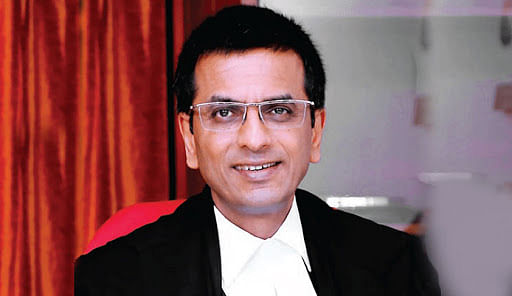Legal experts have said that Justice Chandrachud’s loud dissent against the Aadhaar verdict will be valuable if ruling is reviewed in future.
New Delhi: Justice D.Y. Chandrachud penned a dissent against the Supreme Court constitution bench’s verdict on Aadhaar Wednesday, saying “identity is necessarily a plural concept”.
Legal experts have said that Chandrachud’s loud dissent in the 4:1 verdict, which practically rejects every finding of the majority opinion, would be valuable if the ruling is reviewed in the future.
In his 480-page opinion, Justice Chandrachud struck down the Aadhaar Act in its entirety. ThePrint analyses why he did so.
Also read: Aadhaar was a lost ‘liberal’ cause and even Google knew it
Three-fold test
The Supreme Court’s privacy ruling last year had laid down a three-fold test to check whether a statute violates the right to privacy. The test is that, apart from enacting a valid law, the executive must have a legitimate interest to intrude into a citizen’s private life, and the law must be proportional and not arbitrary.
Justice Chandrachud in his opinion held that Aadhaar fails two of the three criteria.
“In understanding the interface between governance, technology and freedom, this case will set the course for the future. Our decision must address the dialogue between technology and power,” Justice Chandrachud wrote in the opening paragraphs of his opinion.
“Can technologies which are held out to bring opportunities for growth also violate fundamental human freedoms? Second, if the answer to the first is in the affirmative, how should the balance be struck between these competing interests?” the judge wrote, outlining the questions he would answer.
Aadhaar as Money Bill
While the majority opinion held that the Aadhaar Act could be validly categorised as a Money Bill, Chandrachud rejected this. He said that a Money Bill must deal “only” with tax-related issues, but Aadhaar is wider in its scope.
Since the law is not validly passed, it fails the first criteria.
Legitimate state interest
Justice Chandrachud agrees that the state is right in making a law that could be in conflict with fundamental rights, since it has a legitimate interest in ensuring that its subsidies are not misused.
However, he disagreed with the view that one right can be taken away at the cost of the other to meet even legitimate interests.
Chandrachud cited the 2017 nine-judge privacy ruling, which he was a part of, to reject the government’s stand that the court must balance the apparent conflict between civil-political rights of some individuals versus the socio-economic rights of others.
Proportionality
Discussing at length the role of the Unique Identification Authority of India (UIDAI), the “umbrella body” under the Aadhaar statute, Justice Chandrachud said it has been given excessive powers.
He also questioned the fact that biometric information was collected before the Aadhaar Act was passed in 2016, as well as the legality of contracts between UIDAI and private entities to collect data.
Also read: Aadhaar verdict is a criticism of the way Indian engineers look at world
Significantly, Chandrachud questioned UIDAI’s claim of Aadhaar being a unique identity.
“Neither the central government nor UIDAI have the source code for the de-duplication technology which is at the heart of the programme,” he wrote, noting that the source code belongs to a foreign entity while UIDAI is only a licencee.
“Identity is necessarily a plural concept. The Constitution also recognises a multitude of identities through the plethora of rights that it safeguards. The technology deployed in the Aadhaar scheme reduces different constitutional identities into a single identity of a 12-digit number, and infringes the right of an individual to identify herself/himself through chosen means,” the judge said.
